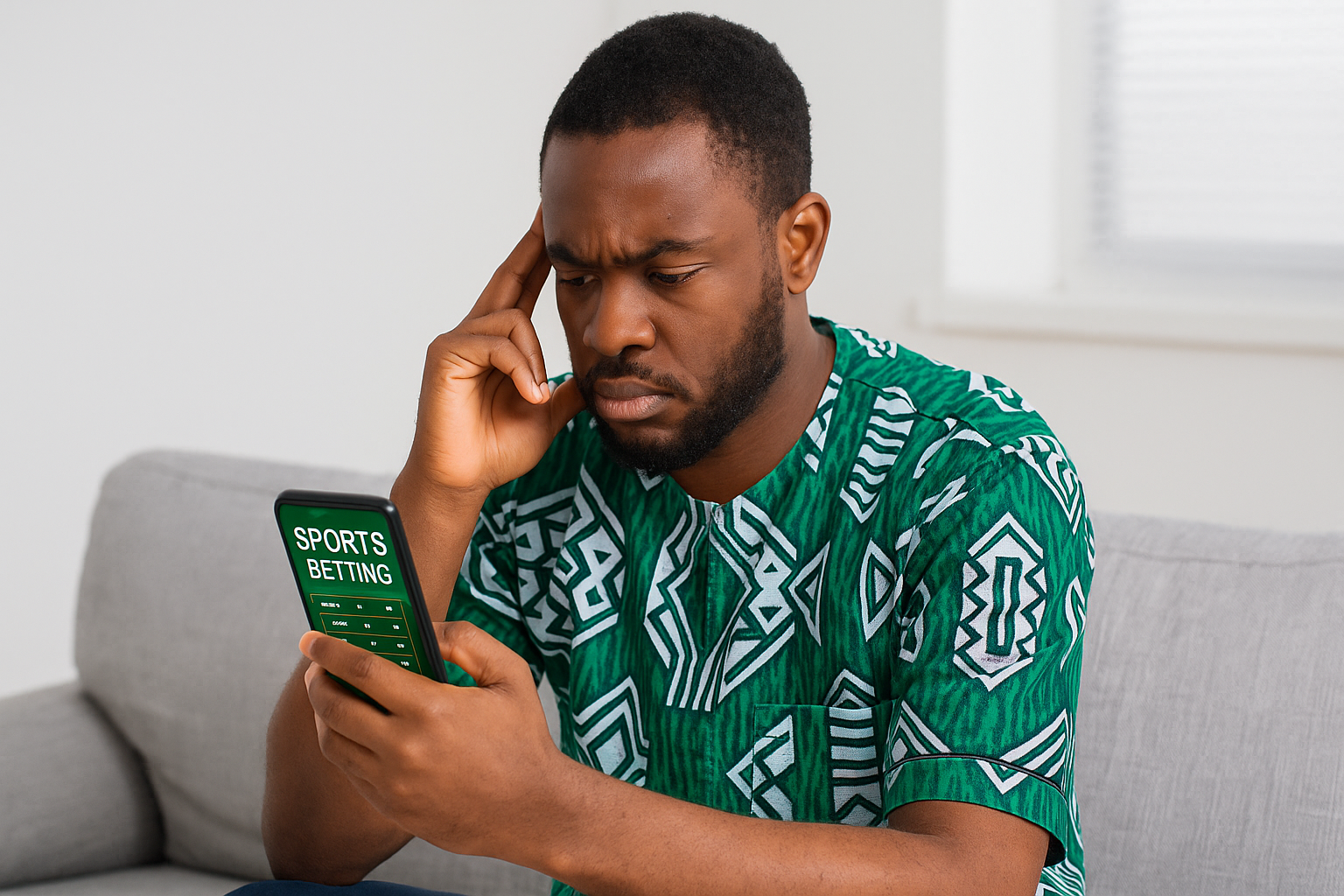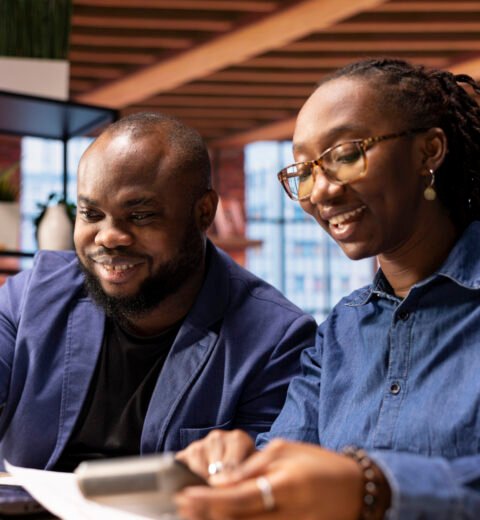In recent years, sports betting has become a booming industry—easy to access, constantly advertised, and now fully legal across most of the U.S. and the UK. For many Nigerians in the UK, it may start as a fun way to place a bet on Arsenal, Super Eagles, or the next big fight night. But for some, the lines between casual betting and addiction are starting to blur.
And it’s not just anecdotal. A new study published in JAMA Internal Medicine reveals a 23% increase in online searches for gambling addiction help since sports betting was legalized. The same trend is quietly showing up among Africans in the diaspora—including here in the UK.
Why This Matters to the Naija Community
With more betting ads now popping up during Premier League games, Nigerian music videos, and even on social media featuring big names like LeBron James and Kevin Hart, the temptation is real. Betting apps like Bet365, Betway, and William Hill make it easy to stake money anytime—from your phone, 24/7.
Some people are coping with job stress, homesickness, or financial strain, and betting can feel like a quick fix. But when it starts leading to debts, lies, stress, or strained relationships—it’s a red flag.
The Numbers Tell a Story
The U.S.-based study showed gambling spend skyrocketing from $4.9 billion in 2017 to $121 billion by 2023. The UK gambling scene has also grown rapidly, and British Nigerians are not left out. Researchers found that online searches like “gambling addiction hotline” or “can I stop betting?” shot up drastically—signalling a rise in silent struggles.
And let’s be honest—gambling is still a taboo topic in many African homes. People often hide their losses or shame, which makes it even harder to ask for help.
What Makes Sports Betting So Addictive?
- Easy Access: Betting is just a few taps away on your phone.
- Cultural Normalisation: Ads are everywhere—TV, social media, football matches. It now feels “normal.”
- The Thrill of the Win: Like many addictions, betting triggers dopamine—the feel-good chemical. The more you win, the more you want to bet again.
- Peer Pressure: If your friends or work colleagues are into it, you might feel left out if you’re not.
Common Signs of Gambling Addiction
According to mental health experts, here’s how you know betting might have become a problem:
- You lie to friends or family about how much you’ve lost.
- You borrow money or miss rent because of betting.
- You feel stressed, angry, or moody when not gambling.
- You can’t stop even when you want to.
- You skip work, family time, or church/mosque to gamble.
- You keep betting more to “win back” what you lost.
This isn’t about judging anyone. It’s about recognizing when it’s time to pause, reflect, and get help.
So What Can We Do as a Community?
Dr. Timothy Fong, a psychiatrist at UCLA, says many people don’t even realise they have a gambling problem. “They just think they’re unlucky,” he says. But denial keeps the cycle going.
Here’s how we can protect ourselves and our loved ones:
✅ Start the Conversation. Talk openly—at home, in church, at community events. Silence fuels addiction.
✅ Limit Exposure. Uninstall betting apps or block them if they’ve become a temptation.
✅ Set Boundaries. Agree on a monthly entertainment budget and stick to it.
✅ Seek Support. You’re not alone. Help is out there (see below).
✅ Push for Better Regulation. We need clearer warnings and limits on sports betting ads targeted at vulnerable groups—including immigrants.
Getting Help in the UK
If you’re worried about your betting habits—or someone else’s—reach out:
- GamCare (UK): Call 0808 8020 133 (24/7) or visit www.gamcare.org.uk
- NHS Gambling Addiction Service: Free support across the UK.
- Your GP: You can talk confidentially and get referred to specialist help.
- Faith-Based Counselling: Some churches and mosques offer culturally sensitive support.
🎯 Final Word for the Naija UK Connect Community:
Let’s watch out for each other. Gambling addiction doesn’t wear a visible face—but it can affect anyone. If you or someone you love is struggling, don’t suffer in silence. Speak up. Get help. You are not alone. 💚🇳🇬
#NaijaUKConnect #BettingAwareness #MentalHealthMatters #TalkAboutIt #NigeriansInUK
Join Our WhatsApp Channel
Stay updated on the latest UK news, including education, health, job openings, and more for those living in the UK!
Join here: Naija UK Channel
Also, follow us on our social media channels for the latest updates and discussions:
- Twitter: @NaijaUKConnect
- Facebook: Naija UK Connect
- Instagram: @naijaukconnect




